Marco Comerio
Modelling Business Agreements in the Multimodal Transportation Domain through Ontological Smart Contracts
Sep 05, 2022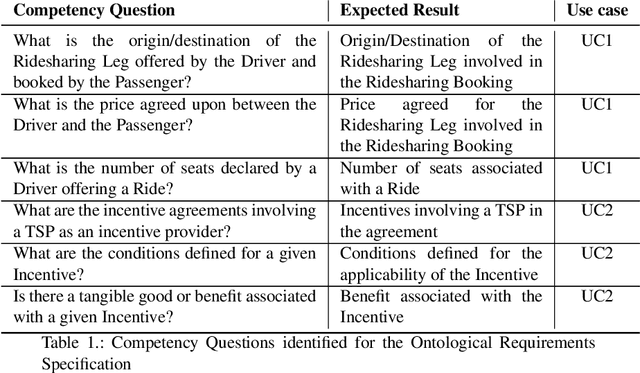

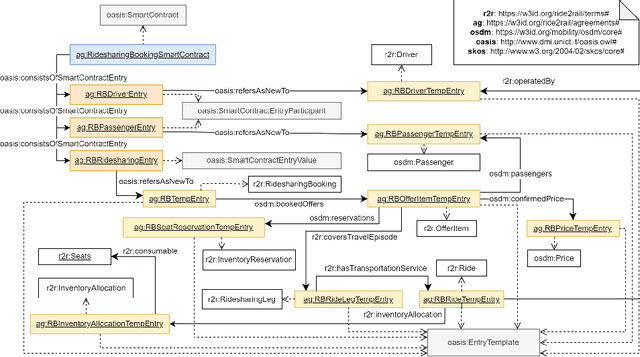
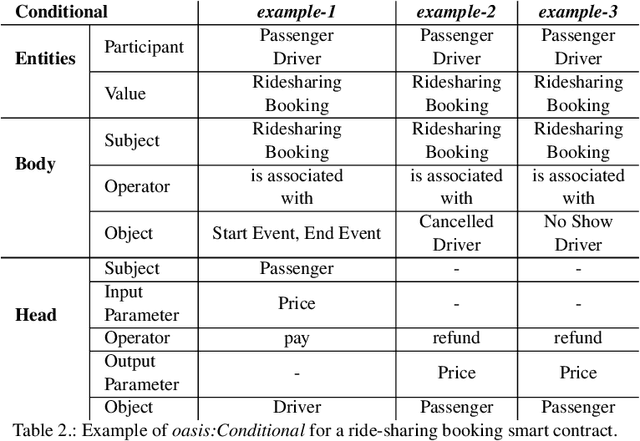
Abstract:The blockchain technology provides integrity and reliability of the information, thus offering a suitable solution to guarantee trustability in a multi-stakeholder scenario that involves actors defining business agreements. The Ride2Rail project investigated the use of the blockchain to record as smart contracts the agreements between different stakeholders defined in a multimodal transportation domain. Modelling an ontology to represent the smart contracts enables the possibility of having a machine-readable and interoperable representation of the agreements. On one hand, the underlying blockchain ensures trust in the execution of the contracts, on the other hand, their ontological representation facilitates the retrieval of information within the ecosystem. The paper describes the development of the Ride2Rail Ontology for Agreements to showcase how the concept of an ontological smart contract, defined in the OASIS ontology, can be applied to a specific domain. The usage of the designed ontology is discussed by describing the modelling as ontological smart contracts of business agreements defined in a ride-sharing scenario.
Turning Transport Data to Comply with EU Standards while Enabling a Multimodal Transport Knowledge Graph
Nov 12, 2020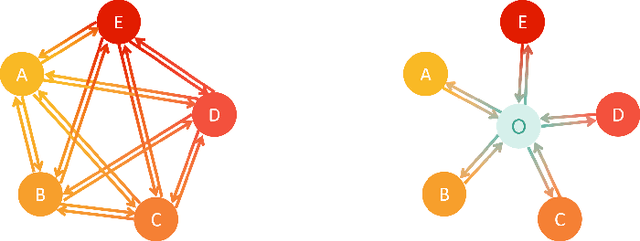
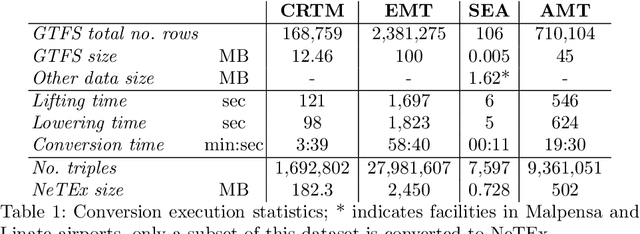
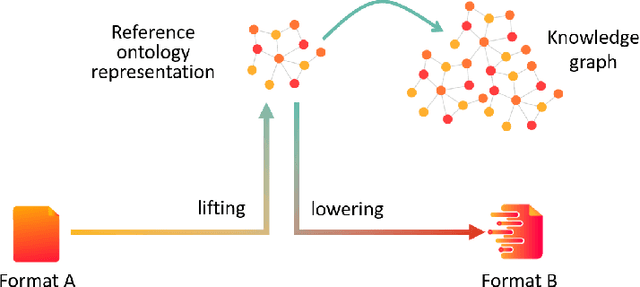
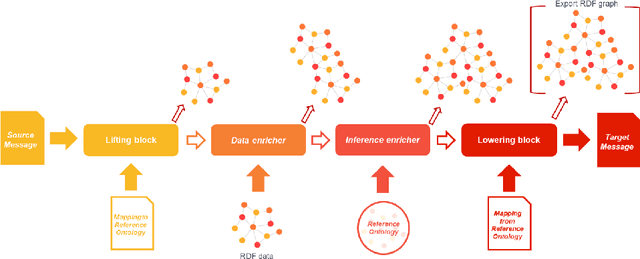
Abstract:Complying with the EU Regulation on multimodal transportation services requires sharing data on the National Access Points in one of the standards (e.g., NeTEx and SIRI) indicated by the European Commission. These standards are complex and of limited practical adoption. This means that datasets are natively expressed in other formats and require a data translation process for full compliance. This paper describes the solution to turn the authoritative data of three different transport stakeholders from Italy and Spain into a format compliant with EU standards by means of Semantic Web technologies. Our solution addresses the challenge and also contributes to build a multi-modal transport Knowledge Graph of interlinked and interoperable information that enables intelligent querying and exploration, as well as facilitates the design of added-value services.
 Add to Chrome
Add to Chrome Add to Firefox
Add to Firefox Add to Edge
Add to Edge